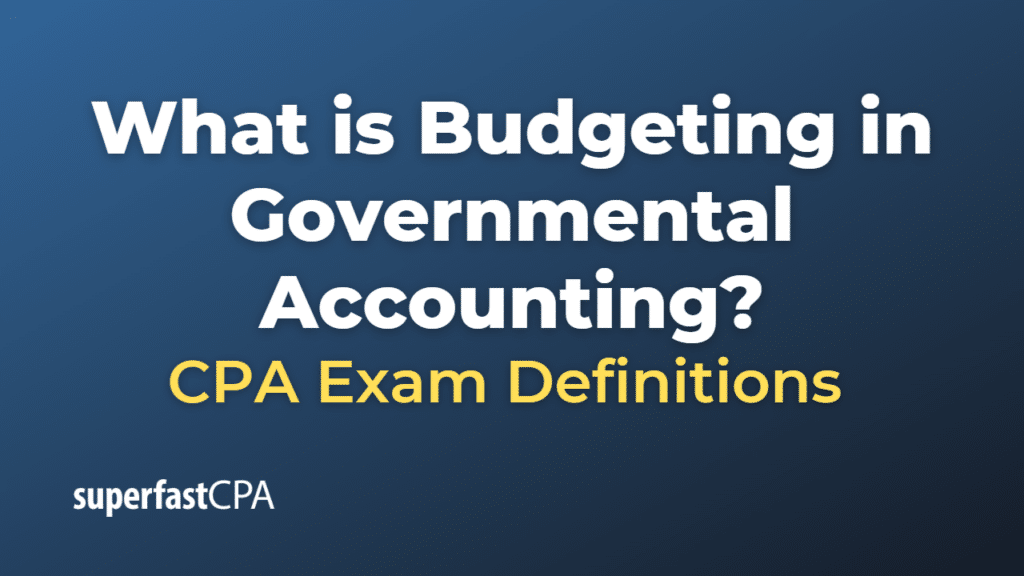Budgeting in Governmental Accounting
Budgeting in governmental accounting refers to the process by which a government plans for its upcoming revenues and expenses. A budget is a financial plan that estimates revenues from various sources (like taxes, fees, grants, and loans) and allocates them to various services (like public safety, health services, education, infrastructure, etc.) that the government plans to provide in a specific time period, typically a year.
Here’s how the process typically works:
- Preparation: Various departments within the government prepare their budget requests, outlining how much funding they need and what they plan to do with it.
- Review and Approval: These requests are reviewed by the budget office, and sometimes by the executive (like a mayor or governor), who may make changes before presenting the proposed budget to the legislative body (like a city council or state legislature). The legislative body reviews the budget, makes further changes as needed, and ultimately approves the budget.
- Implementation: Once the budget is approved, the funds are allocated to the various departments as outlined in the budget. Throughout the budget period, the departments use these funds to carry out their activities.
- Monitoring and Control: The government’s financial department monitors revenues and expenditures throughout the year to ensure they align with the budget. If actual revenues or expenditures deviate significantly from the budget, adjustments may be needed.
- Reporting and Auditing: At the end of the budget period, the government prepares financial reports that show the actual revenues and expenditures and compares them to the budget. These reports are often audited to ensure their accuracy and completeness.
Budgeting is crucial in governmental accounting because it ensures that the government has a plan for managing its resources responsibly. It also provides a tool for accountability and transparency, as it allows citizens and other stakeholders to see how the government plans to use public funds.
Example of Budgeting in Governmental Accounting
Let’s consider an example involving a city government.
- Preparation: The Parks and Recreation Department of the City of Parkville wants to upgrade several city parks. It prepares a budget request detailing the projected costs of these upgrades and submits it to the city’s budget office.
- Review and Approval: The city’s budget office and the Mayor review the request. They agree that park upgrades are necessary and beneficial to the city’s residents, so they include the requested funding in the proposed budget. The Mayor presents this proposed budget to the City Council. The council reviews the proposed budget, debates the park upgrades along with other budget items, and ultimately approves a final budget that includes the funding for the park upgrades.
- Implementation: Once the budget is approved, the Parks and Recreation Department receives the allocated funds. It uses these funds to contract with a landscape company to make the desired upgrades.
- Monitoring and Control: Throughout the year, the city’s financial department monitors the Parks and Recreation Department’s expenditures to ensure they align with the budget. It turns out that due to increased material costs, the park upgrades are more expensive than originally planned. The Parks and Recreation Department requests additional funding from the City Council, which approves the request.
- Reporting and Auditing: At the end of the year, the city’s financial department prepares financial reports showing the actual revenues and expenditures for the year. The reports show that the Parks and Recreation Department spent more than originally budgeted due to the increased costs of the park upgrades. The city hires an independent auditor to audit these financial reports. The auditor verifies the accuracy of the financial reports and confirms that the additional expenditures were approved by the City Council.
This is a simplified example. The actual budgeting process can be complex and time-consuming, involving many different people and departments within a government. But regardless of the size or complexity of the government, the overall goal is the same: to plan for and manage public resources effectively and responsibly.













